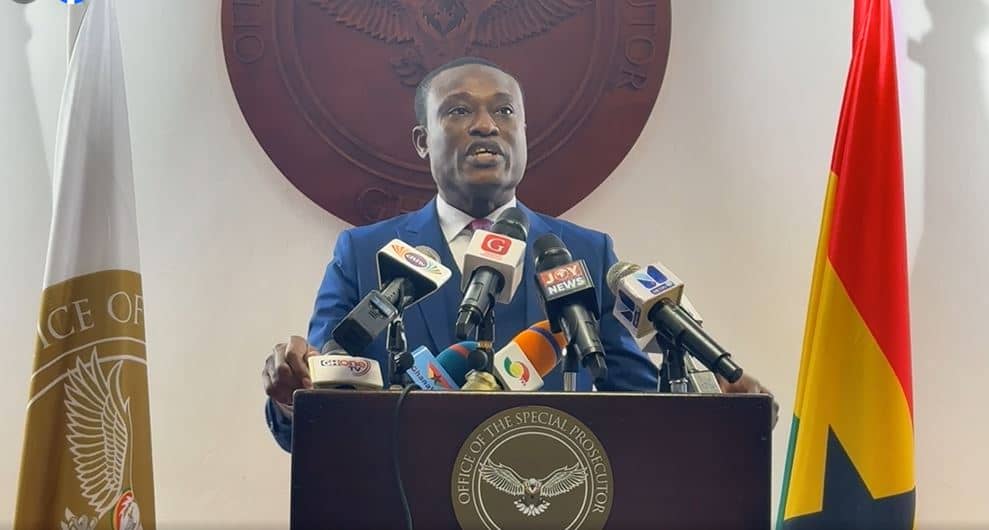Accra, Ghana — July 2025
In a landmark development, the Office of the Special Prosecutor (OSP) has achieved its first criminal convictions since its launch in 2018. These outcomes mark a turning point in an institution long criticized for inaction despite significant public funding and high expectations.
⚖️ Case Highlights & Legal Outcome
- In June 2025, the Accra High Court accepted a plea bargain involving Thomas Andy Owusu, accused of bribery-related offences tied to illegal mining licence applications in the case titled The Republic v Charles Bissue & Another. Owusu pleaded guilty to corruption and influencing a public officer. He was sentenced to:
- A fine of 500 penalty units (equivalent to ₵6,000)
- Restitution of ₵200,000 for soliciting ₵15,000 in bribes
- In May 2025, the Tamale High Court convicted six public officials, including school administrators and payroll officers, involved in a fraudulent payroll scheme. They admitted guilt and returned funds totaling ₵86,318.95 in unearned salaries and ₵20,000 as penalties. In total, ₵106,319.64 was recovered by the OSP
These convictions stemmed from plea agreements and are recognized as the OSP’s first successful prosecutions, delivering both legal accountability and financial restitution to the state
📉 Context & Public Frustration
Since its inception, OSP faced significant scrutiny for its lack of convictions, despite handling high-profile corruption scandals. Parliamentarians, such as Isaac Boamah Nyarko and Baffuor Agyei Awuah, repeatedly questioned its efficacy, noting that after nearly eight years, the office had zero court convictions and only a handful of cases under active prosecution.
Critics also flagged disproportionate budgeting—as public funds allocated to OSP remained high despite minimal results, contrasting sharply with agencies like Legal Aid, which received consistently lower funding yet delivered tangible outcomes.
✅ What These Verdicts Mean
- Breaking the Drought
The guilty pleas mark not just legal victories but foundational firsts for the OSP. They signal movement from investigation to enforcement, the core mandate under Act 959. - Financial Accountability
Recoveries totaling ₵106,000+ showcase the office’s ability to retrieve misallocated public resources, aligning with its obligations under asset recovery mandates. - Precedent-Setting
The use of plea bargains reflects a strategic shift—using negotiation to expedite justice while securing admissions and compensation, especially when trial timelines are long or evidence challenging . - Civic Trust Builder
Delivering convictions and restitution begins to restore public confidence after prolonged criticism. These outcomes may help mitigate earlier skepticism about the institution’s value and legitimacy.
📋 Summary
| Metric | Status |
|---|---|
| Convictions | First achieved in 2025 via court-approved plea bargains |
| Financial Recoveries | ₵106,319.64 recovered |
| Legal Framework | Based on the OSP Act 2017 (Act 959) and related regulations |
| Public Perception | Historically low; expected to improve post-convictions |
🔭 Looking Ahead
While these convictions are significant, observers stress the need for sustained enforcement beyond plea bargains, more high-profile trials, and greater proactive recoveries. Lawmakers are calling for comprehensive performance reviews, stricter alignment with the office’s original anti-corruption mandate, and continued accountability to taxpayers.
DISCLAIMER: The Views, Comments, Opinions, Contributions and Statements made by Readers and Contributors on this platform do not necessarily represent the views or policy of ahantawest.com

